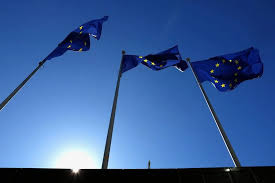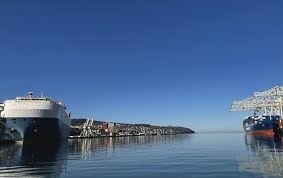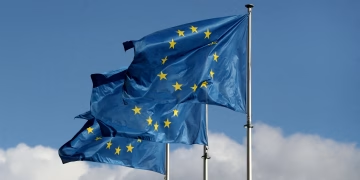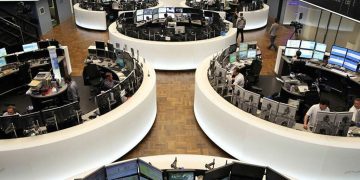As the European Union (EU) navigates its complex relationship with China, it faces a pressing question: should it prioritize strategic caution or pursue deeper economic engagement? This dilemma has grown more urgent amid shifting global power dynamics, trade imbalances, and geopolitical tensions. In particular, China’s alignment with Russia and its assertive industrial policies have heightened European concerns.
The EU must carefully weigh its economic interests against security risks. Decisions made now will influence trade, technology, and political alliances for years to come.
The Strategic Landscape: A Balancing Act
The EU’s approach to China has shifted in recent years. Initially, the Union focused on partnership and cooperation. However, growing concerns about economic dependencies and security risks have led to a more cautious stance. For example, the EU recently imposed tariffs on Chinese electric vehicles. These tariffs aim to correct market imbalances and protect European industries from unfair competition.
Moreover, China’s support for Russia amid the ongoing war in Ukraine has deepened European apprehensions. European Commission President Ursula von der Leyen emphasized that EU-China relations now depend on China’s actions regarding the conflict. She warned that European openness requires mutual progress and fair trade practices.
In short, the EU cannot view China purely as an economic partner. Geopolitical realities now play an equally important role.
Economic Engagement: Opportunities and Risks
Despite these challenges, China remains a crucial economic partner for Europe. Trade continues to grow, and China provides essential raw materials, such as rare earth elements, which are vital for Europe’s green transition. However, China’s recent export controls on these materials disrupted supply chains. This disruption has prompted the EU to coordinate with the G7 to address these curbs.
In addition, the EU is considering stricter conditions for Chinese investments. These include technology and know-how transfer requirements. The goal is to protect European economic interests while ensuring that foreign investment creates jobs and shares intellectual property. European firms operating in China often face similar conditions, highlighting the principle of reciprocity.
In other words, while engagement with China brings economic benefits, it also carries risks that the EU must manage proactively.
A Strategic Choice: De-Risking or Decoupling?
The EU faces two main strategies. First, it can pursue de-risking, which mitigates threats while maintaining economic ties. De-risking involves diversifying supply chains, reducing dependence on sectors where China dominates, and strengthening Europe’s technological sovereignty. This approach protects both economic and security interests without severing trade relations.
Second, the EU could consider decoupling. This strategy would involve disengaging from China’s economy. However, it could disrupt trade and investment flows and significantly impact European industries that rely on Chinese markets and supply chains.
Recently, the EU launched initiatives like the Global Gateway program to counter China’s influence. This program offers sustainable infrastructure investments to developing countries. By doing so, Europe positions itself as a “lifestyle superpower” and provides an alternative to China’s Belt and Road Initiative.
Thus, the EU seeks a middle path: engagement tempered by caution and strategic safeguards.
Internal Divisions and the Need for Cohesion
A major challenge for the EU is achieving unity on China policy. Member states vary in economic dependence on China and in their perception of geopolitical risks. Countries with strong trade ties to China often favor engagement. In contrast, others prioritize security concerns and support a cautious approach.
This division complicates the EU’s ability to implement coherent policies. Experts argue that the Union must define a clear China strategy and reduce conflicting voices. Only then can it navigate its relationship with Beijing effectively.
Without cohesion, European initiatives risk being inconsistent or undermined by internal disagreements.
Strategic Autonomy and Global Leadership
Moving forward, the EU must balance economic interests with strategic priorities. Achieving strategic autonomy is essential. Europe needs the capacity to act independently in the global arena. This involves investing in critical technologies, securing supply chains, and fostering domestic innovation.
At the same time, engagement with China on global issues remains important. Collaboration on climate change, public health, and sustainable development can promote mutual understanding and benefit both sides. In other words, the EU can combine caution with cooperation to advance its interests.
Ultimately, Europe’s strategy should be nuanced. It must incorporate both engagement and caution. By carefully calibrating policies, the EU can manage its relationship with China while maintaining resilience and global influence.
Recent Developments
- China’s Rare Earth Export Controls: China’s curbs on rare earth exports disrupted supply chains, prompting the EU to coordinate with the G7.
- EU Investment Conditions: The EU considers requiring technology and know-how transfers for Chinese investments to safeguard economic interests.
- Global Gateway Program: The EU’s program offers sustainable infrastructure investments to developing countries. It positions Europe as a “lifestyle superpower” and counters China’s Belt and Road Initiative.
Conclusion
Europe’s China dilemma is a test of strategy, unity, and foresight. On one hand, China remains a crucial economic partner. On the other, geopolitical tensions and economic dependencies require caution. The EU’s challenge is to balance these competing priorities.
By de-risking where necessary, pursuing strategic autonomy, and maintaining targeted engagement, the EU can safeguard its economic and security interests. Moreover, unified policies and cooperative programs can enhance Europe’s influence globally.
Ultimately, Europe must navigate its China relationship carefully. Its decisions today will shape trade, technology, and diplomacy for decades, determining whether the EU emerges as a resilient global actor or struggles with internal divisions and external pressures.







